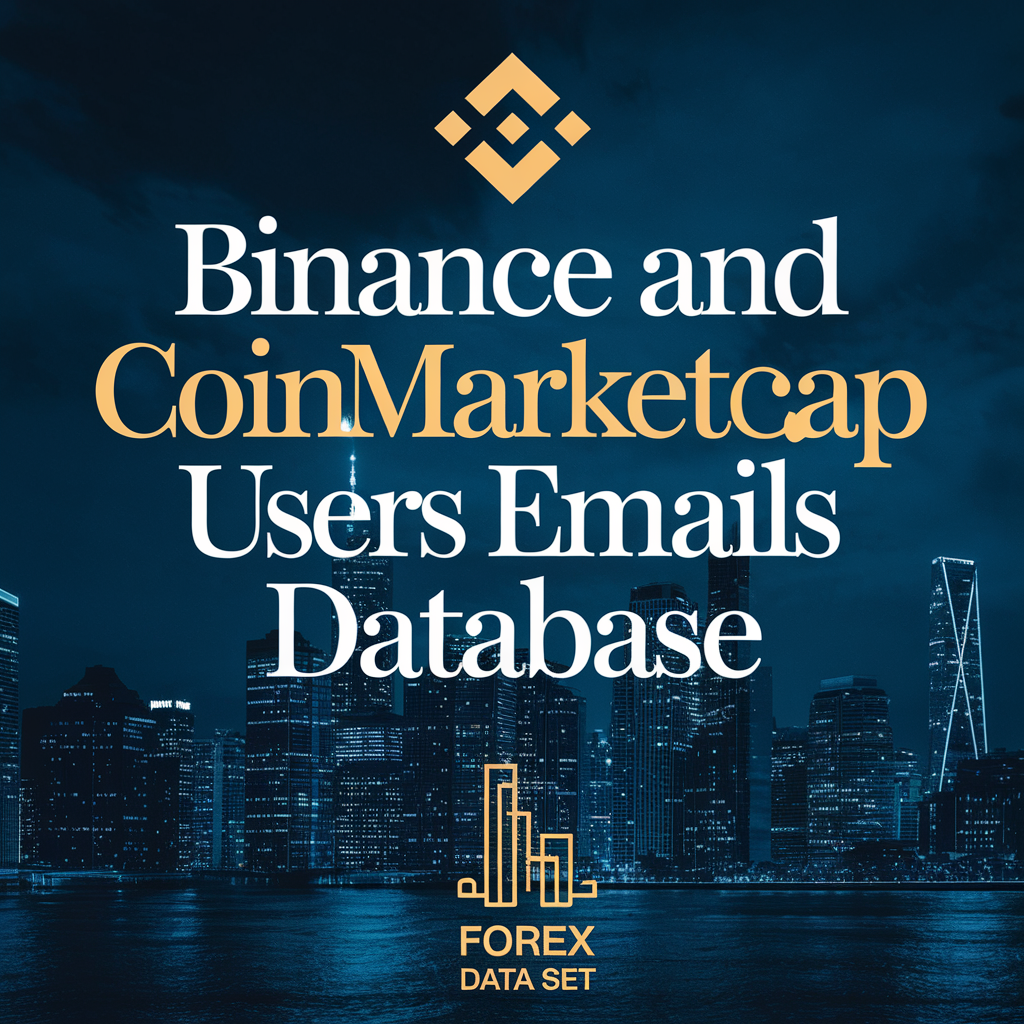Binance And Coinmarketcap Users Emails Database
In the fast-growing world of cryptocurrency, email databases have become valuable assets for marketers, businesses, and sometimes, even scammers. Many companies and individuals are actively looking for cryptocurrency user email lists to reach out to people who use top platforms like Binance and CoinMarketCap. One such source, ForexDataset.com, claims to offer access to email databases from both platforms.
But what’s really inside these lists? Are they safe or legal to use? And what are the risks? Let’s break it down.
What Is Binance?
Binance is one of the world’s largest and most popular cryptocurrency exchanges. Millions of people use it to buy, sell, and trade digital currencies like Bitcoin, Ethereum, and many others. To open an account, users must provide an email address, personal information, and sometimes even identity verification documents. This data is highly valuable—and vulnerable.
What Is CoinMarketCap?
CoinMarketCap (CMC) is a trusted website used by the global crypto community to track live prices, market cap rankings, and trends for thousands of cryptocurrencies. People visit CMC daily to do research, analyze price changes, and plan their investments. Like most platforms, CMC collects user data when people sign up or subscribe.
What Is a Crypto Email Database?
A crypto email database is a digital list of email addresses belonging to users of cryptocurrency platforms. These lists are used for a variety of purposes:
-
Marketing and advertising
-
Product promotions
-
Research studies
-
Sometimes illegal activities like scams or phishing
ForexDataset.com claims to offer such databases collected from Binance and CoinMarketCap users.
Why Do People Want These Email Lists?
For businesses offering crypto tools, trading bots, or investment schemes, these email lists are like gold. Reaching out to active Binance or CMC users gives them a chance to promote their services directly to a highly targeted audience.
Unfortunately, these lists also attract scammers, hackers, and shady marketers looking to trick people with fake offers, phishing links, or “free Bitcoin” scams.
How Are These Databases Collected?
There are several ways email databases might be gathered—some legal, others not:
-
Hacking or data breaches: Attackers exploit weak security to access user accounts.
-
Scraping bots: Automated tools pull public email data from forums or social sites.
-
Insider leaks: Employees may sell user data for cash.
-
Multiple registrations: Users who sign up on many crypto sites are more likely to be targeted.
Can You Legally Buy These Databases?
It depends on where you live and what laws apply. Here’s what you should know:
-
GDPR (Europe): It’s illegal to buy or sell personal data of EU citizens without their clear consent.
-
CCPA (California): Companies must get permission before selling user data.
-
Binance & CoinMarketCap’s Terms: These platforms strictly prohibit sharing or selling user data.
So if a database includes emails from these platforms, and users didn’t consent, it may be illegal to use.
Dangers of Using Purchased Crypto Email Lists
Getting an email list from sites like ForexDataset.com might sound easy, but there are serious risks:
1. Legal Trouble
You could face lawsuits, fines, or penalties for using stolen or unauthorized data.
2. Spam Complaints
Sending emails to unknown contacts often leads to spam reports, hurting your sender reputation or getting you banned.
3. Cybersecurity Risks
Using these lists for phishing or scams could lead to financial losses for victims—and legal consequences for you.
4. Fake or Outdated Data
Many lists contain fake, inactive, or outdated emails that won’t help your business.
Related Product:





